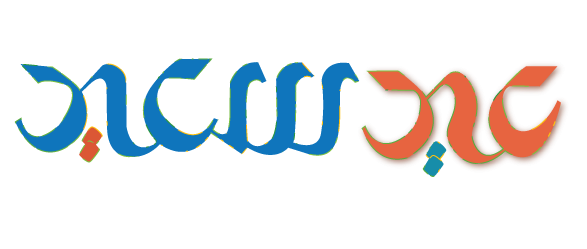 Carolyn Kaster/AP Photo
Carolyn Kaster/AP PhotoThe post-election party is over for Barack Obama, with the president slipping in overall approval and relinquishing his advantage over congressional Republicans in trust to handle the economy. But it looks not so much like a gain for the GOP as a sequester-inspired pox on both houses.
The automatic budget cuts now in effect are unpopular, if not overwhelmingly so – Americans in the latest ABC News/Washington Post poll disapprove by 53-39 percent. But concerns about their impact are broad, and, by a 14-point margin, more put responsibility on the Republicans in Congress than on Obama for the sequester taking place.
See PDF with full results, charts and tables here.
That said, it’s Obama’s economic stewardship that’s taken the bigger hit. Last December, still enjoying a post-election glow, he held an 18-point edge over the Republicans in Congress in trust to handle the economy. Today, with the latest budget impasse in full force, that’s now shrunk to an insignificant 4 percentage points.
The president’s job approval rating overall, meanwhile, has lost 5 points, from nearly a three-year high of 55 percent in January to his more customary 50 percent. The Democrats in Congress have moved in the same direction, down 5 points in approval since December to 34 percent in this poll, produced for ABC by Langer Research Associates. ABC News platforms today will air an exclusive interview with the president by ABC’s George Stephanopoulos.
Approval of the Republicans in Congress is flat, but, at 24 percent, even lower than it is for the Democrats. And the Congress as a whole has a dismal 16 percent job approval rating, a mere three points from the record low in nearly 40 years of polling it set slightly more than a year ago.
CUTS AND CRITICISM – A quarter of Americans say they’ve been negatively impacted by the cuts, with about half that number calling it a major impact. Complaints likely will grow if more are hurt: Those who report a negative impact are 15 points more likely than those not impacted to disapprove of the cuts. And that rises to 24 points among those heavily impacted.
Notably, the impact of the cuts relates to income, a strong measure of economic vulnerability: Among people with household incomes less than $20,000 a year, 35 percent say they’ve been hurt by the sequester. Among those with $100,000-plus incomes, it’s 16 percent.
Additionally, strength of sentiment is running against the cuts – 34 percent strongly disapprove, twice as many as strongly approve. That appears to be inspired at least in part by the concerns they raise, if not the damage they’ve done to date.
Apprehension indeed is high: Americans by 2-1 think the across-the-board cuts will damage the economy, by an even greater margin foresee harm to the U.S. military and by 60-36 percent think they’ll harm the government’s ability to provide basic services. Fewer – albeit nearly half – see likely damage to their personal finances. (Concerns about the impact on the economy and personal finances rise among some groups, notably women and lower-income adults.)
Damage to the economy would be tough to take, given its slow gains. Fifty-three percent in this poll say it’s begun to recover, the same as in December and up 17 points from late 2011. Consumer sentiment, for example in the weekly Bloomberg Consumer Comfort Index, is near its best of the last five years. A recovery nixed by gridlock would not go over well – witnessed by the fact that, even with gains in consumer sentiment, Obama’s rating for handling the economy lost 6 points in this poll, reaching its lowest since last summer.
AVOID? – Worries what they are, the public by a broad 68-28 percent says Obama and the GOP should work to halt the cuts, rather than let them proceed – perhaps marking the thinking behind the president’s recent overtures, including his meeting with the Republican conference today.
But the upper hand in renewed negotiations is hard to discern: the public divides on whom they trust more to find the right balance between cutting and spending, Obama or the Republicans, 43-44 percent.
Support for specific proposals does provide some guidance: The public by a 20-point margin, 58-38 percent, supports cutting military spending, albeit in a more targeted way than across the board. And support is similar for one item on the revenue side; Americans by 56-38 percent favor limiting the level of deductions available to higher-income taxpayers.
It’s a closer call, 48-44 percent, on limiting deductions that businesses can take on their federal taxes. And two other proposals, back on the spending-cut side, engender substantial opposition: by 60-39 percent against raising the age for Medicare coverage from 65 to 67; and by 71-26 percent against cuts in Medicaid, the government health insurance program for the poor.
PARTY LINES – Partisan affiliation divides the public on some of these issues, including on views of the sequester-forced cuts themselves. Democrats disapprove of the across-the-board spending cuts by a wide 60-33 percent. Among Republicans that narrows to 52-41 percent; among political independents it approaches an even split, 48-43 percent.
Majorities across these groups prefer some other approach to budgeting, but again Democrats are particularly anti-sequester. Eighty percent say Obama and the Republicans should try to resolve it, vs. 62 percent of Republicans and a similar six in 10 independents.
Independents line up more with Democrats on two possible components of sequester alternatives; 62 percent in both groups favor targeted military cuts, compared with 47 percent of Republicans. Independents also align more closely with Democrats in opposition to cutting Medicaid; most Republicans oppose it too, but much less one-sidedly.
Partisanship sharpens, naturally, in views of who’s responsible for the cuts taking effect. Seventy-three percent of Democrats say the Republicans brought the sequester about. Independents also point more to the GOP than to Obama, but much more narrowly. Fifty-six percent of Republicans, though, hold Obama mainly responsible.
GROUPS and TREND – Partisanship hits its apogee in presidential approval overall: Eighty-eight percent of Democrats approve of the president’s performance while 87 percent of Republicans disapprove. The partisan gap in approval matches the sharpest of his presidency.
To be fair to Obama, it’s not uncommon for a second-term president to see some slippage in approval after his second inaugural, as the to-and-fro of politics returns to the fore. That said, he’s alongside George W. Bush with a lower-than-usual rating at this point. And as views of Congress also indicate, the country clearly is displeased with current politics.
Perhaps more troubling to Obama is the recent trend among independents, often the fulcrum of national politics: His approval rating in this group has lost 10 points since January, to 44 percent.
Specifically on handling the economy, Obama’s lost 10 points in approval among middle- and upper middle-income adults, those in the $50,000 to $100,000 bracket. And in comparison with the Republicans in trust to handle the economy, he’s weakened since December among nonwhites and women, two important support groups for the president.
Beyond direct partisan affiliation, Obama’s approval rating ranges widely among groups, reflecting voting patterns in the November election. Ninety-six percent of African-Americans and 78 percent of all nonwhites approve of his job performance, compared with 41 percent of whites. Age 40 is a dividing line; Obama has 59 percent approval from younger adults, vs. 45 percent among those 40 and older. He’s most popular in the East (60 percent) and less so in the South (43 percent); more so in urban areas (64 percent approval) vs. suburban and rural ones (46 and 35 percent, respectively.). He does 10 points better with people with incomes less than $50,000 than those with higher incomes, 56 vs. 46 percent.
But perhaps most tellingly, Obama has a 73 percent approval rating among people who think the economy is improving, vs. just 24 percent approval from those who don’t see economic improvement. Part of that reflects the filter of partisan predispositions – Democrats are much more apt to think the economy’s gaining ground. But it also means that to the extent economic recovery unequivocally takes hold, Obama benefits. And even while the GOP may get more blame for the sequester, to the extent it’s seen as damaging to the economy, Obama’s also at risk.
METHODOLOGY – This ABC News/Washington Post poll was conducted by telephone March 7-10, 2013, among a random national sample of 1,001 adults, including landline and cell-phone-only respondents. Results have a margin of sampling error of 3.5 points, including design effect. Partisan divisions are 33-25-35 percent, Democrats-Republicans-independents.
The survey was produced for ABC News by Langer Research Associates of New York, N.Y., with sampling, data collection and tabulation by Abt-SRBI of New York, N.Y.


 شارك عبر الماسنجر
شارك عبر الماسنجر
